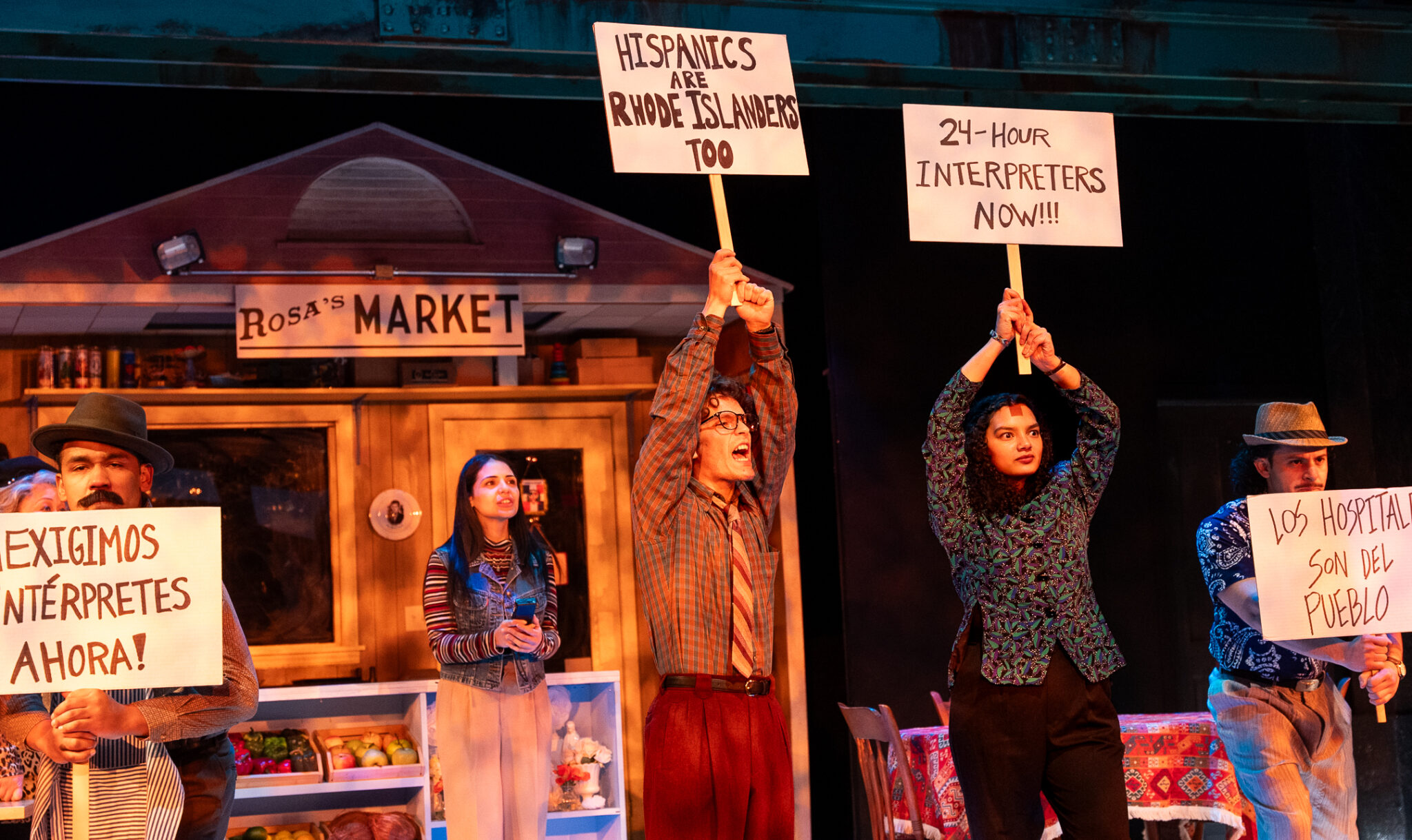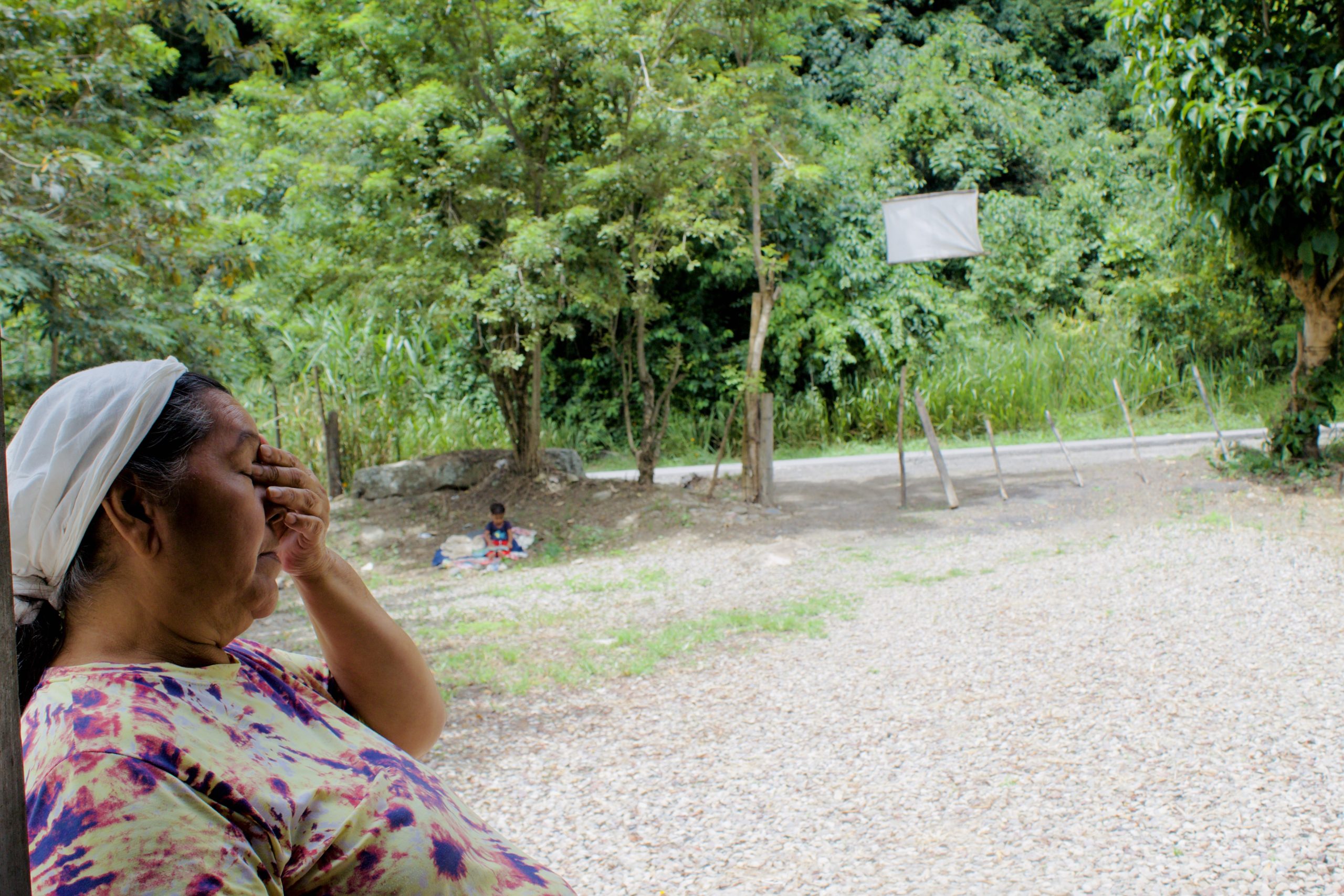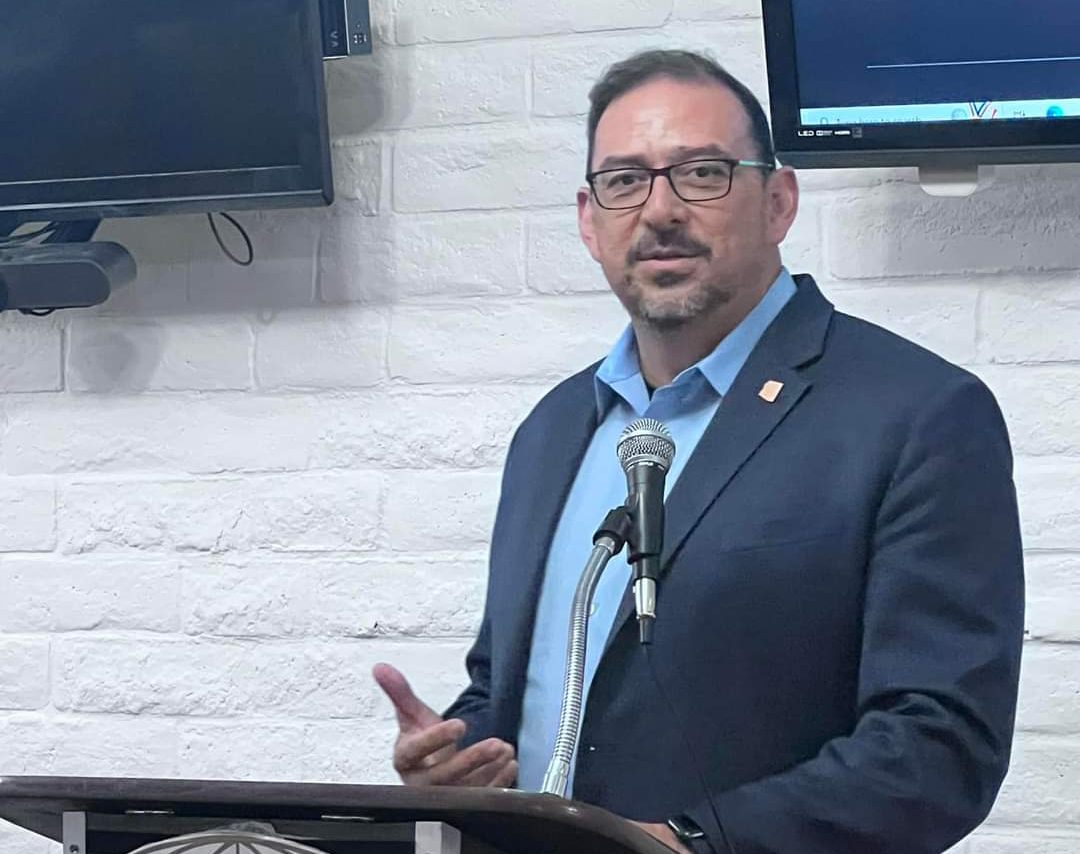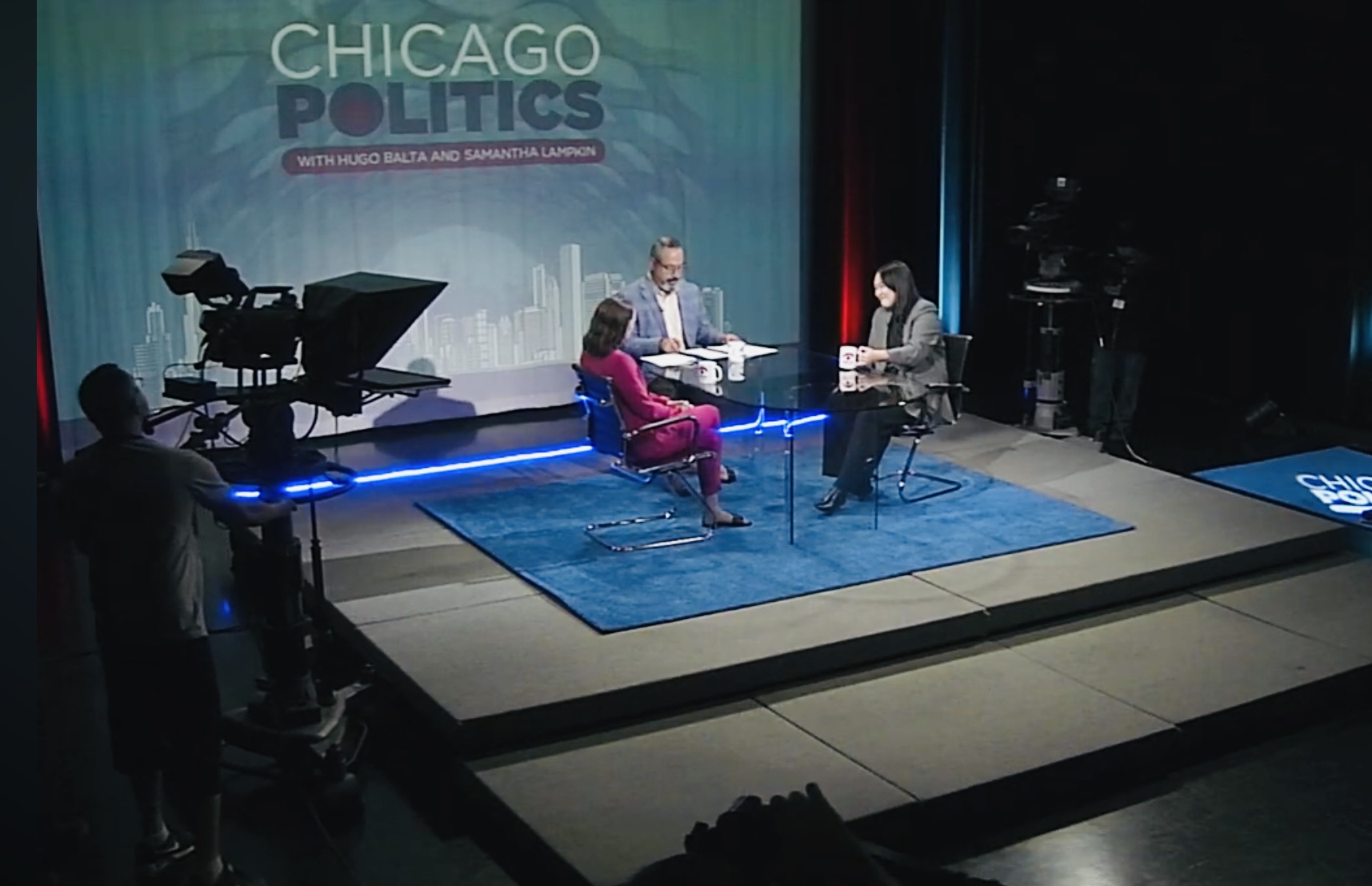PROVIDENCE, RHODE ISLAND—A cultural homage to Providence’s established Latino community, La Broa’, recounts how we got here. In two hours, the performance at Trinity Repertory Company explores several timeless issues within our diverse Latino communities including the evolution of bilingualism and lurking intercultural tensions.
Ten years in the making, La Broa’ goes beyond the surface to confront uncomfortable realities—such as racial and gender discrimination, the fleeing of violence, and the loss of family and friends—and composes comprehensive, balanced narratives. So, don’t be shocked when the theater vibrates with laughter: This exploration of such critical cultural themes incorporates lighthearted scenes that carry equal emotional importance.
Written by Orlando Hernández, La Broa’ is an adaptation of Marta V. Martínez’s local ethnography “Latino History in Rhode Island: Nuestras Raíces”. The performance made its world premiere on Wednesday, January 19, and runs through February 18.
“It is a story of struggle and success, challenge, and opportunity, one that every Rhode Islander with immigrant heritage can appreciate,” commented Trinity Rep Artistic Director Curt Columbus. “La Broa’ gives us a very real, personal glimpse into this particular community over the last 60 years.”
Set in the 1990s, the play follows the blossoming friendship between student journalist Ana and community figure Doña Rosa—who was inspired by the real-life Josefina Rosario, nicknamed “Mother of Providence’s Hispanic Community.” After a chance encounter on the street, Doña Rosa compassionately welcomes and introduces Ana to the local community, acting as her unofficial guide. When a class project requires Ana to profile a local leader, she asks to interview Doña Rosa.
Doña Rosa shares her journey within New England, starting with the moment she arrived from the Dominican Republic decades ago. The audience time travels from the 1940s until their present time in the 1990s through a chronological timeline that’s marked by current events (and stylish, decade-fitting looks—shoutout to the costume department).
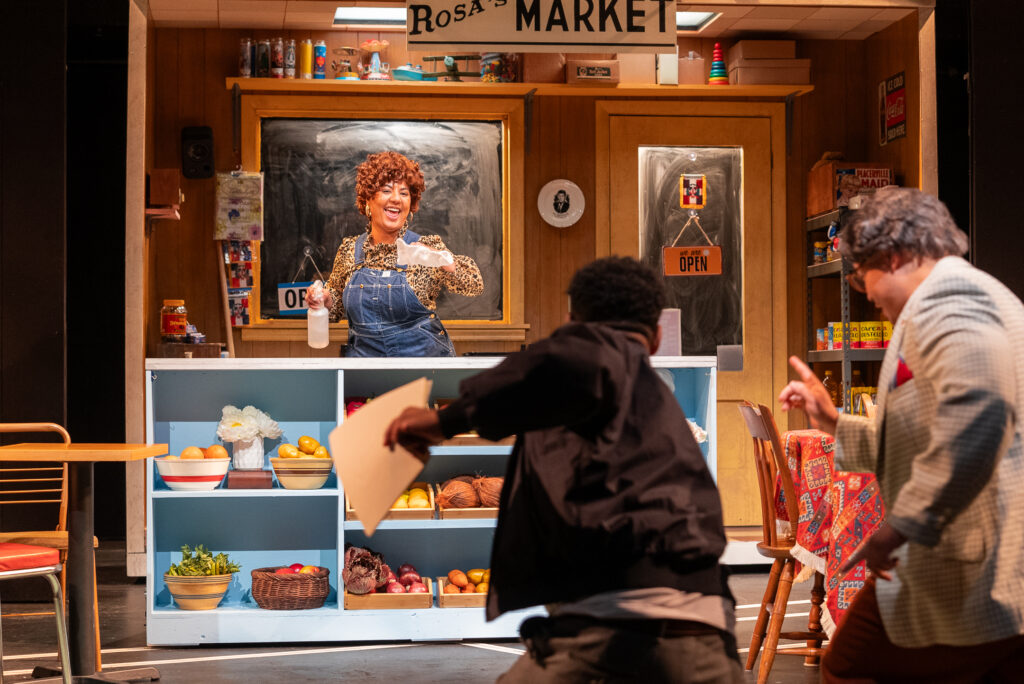
A Love Letter To Bilingualism
The theme of language, specifically bilingualism, emerges throughout the performance as La Broa’s residents begin their sentences in one language and end in another. Several conversations are fully in English or Spanish, but there’s a constant fluidity between the two languages—a melody that first-generation Americans like myself know well. Both Doña Rosa and her U.S.-born daughter Lucrecia are fluent in bilingualism, like many other multigenerational Latino families across the country.
The bilingual environments that immigrant and U.S.-born Latinos have cultivated together over the years, like the La Broa’ neighborhood, are largely unique to the United States.
About 42 million Americans speak Spanish at home—13% of the U.S. population—making it the most common non-English language spoken in the country. As the U.S. Latino population continues to grow rapidly, it also diversifies. In 2020, 68% of Latinos were born in the country.
Within this language phenomenon that’s evolving across the country, the Latino population’s diversity remains prominent. Each Hispanic/Latino ethnicity has phrases, terms, and slang words that are unique to its population. At times, La Broa’ residents represented their own Hispanic/Latino cultures with certain Spanish words that were foreign to my Peruvian American ears.
Language is a powerful component of the U.S. Latino culture. Amid societal pressures that immigrants face to let go of their native tongues, bilingualism is an act of self-advocacy, resistance, and progression. Our traditional Spanish songs, bedtime stories, and even nicknames—my abuelita almost only ever called me ‘gringita’—carry intergenerational messages like time capsules from our home countries.
Evoking these precious memories, La Broa’ is a love letter to bilingualism and the duality of transformation and preservation it represents. Amid ongoing racial and ethnic discrimination—particularly among the influx of migrants—the inclusion of such cultural phenomenons like bilingualism in artistic spaces reinforces the inclusive evolution that is required on a local and broader level.
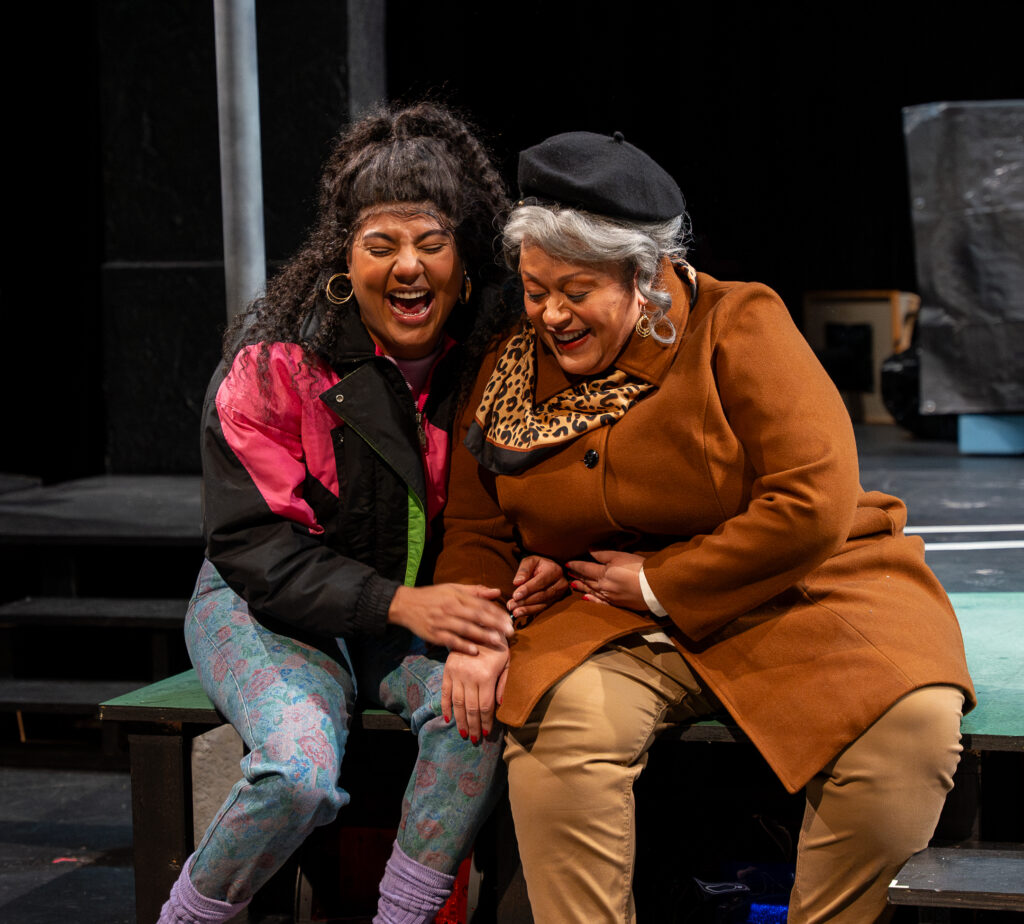
Exploring Racial/Ethnic Community Tensions
La Broa’ discusses the commonly oppressive and, at times, supportive roles that White institutions and individuals can take on within communities of color.
The audience also sees a disconnect between Brown and Black communities when Lucrecia speaks to her mother about civil rights advocacy and how she identifies as Afro-Latino. Doña Rosa claims they are not Black because there is Spanish blood in their lineage. A few other residents chime in, and we hear this glorification of Spanish heritage that exists in many Hispanic/Latino cultures. In turn, there’s an implicit distancing from Black and indigenous heritages that represents an internal, learned sense of racism that persists in many Hispanic/Latino cultures.
However, the conversation of underlying community tensions goes on to acknowledge intercultural discrimination among Hispanics/Latinos. At La Broa’s first community meeting, residents argue about what issues are impacting local Latinos. “That is why you don’t invite Dominicans,” one resident states. “Puerto Ricans are like that,” says another.
Although racial/ethnic tensions are prominent within the Latino community, it’s seldom discussed.
About a quarter of Latino adults said they have experienced discrimination or unfair treatment from other Latinos, according to the Pew Research Center; About 48% of Hispanics reported hearing racist or racially discriminatory comments from Hispanic friends and family about other Hispanics. Statistically, Latinos with darker skin or who were born outside of the U.S. have an increased chance of experiencing this type of discrimination.
The play simultaneously shares these common experiences that unify La Broa’ residents—who are Dominican, Puerto Rican, Columbian, Guatemalan, and so on—while highlighting their diversity and intersectional identities that create distinct cultural views.
Learn more about the performance and purchase tickets online at www.trinityrep.com/labroa or by calling (401)351-4242.

Connecticut Latino News (CTLN) senior reporter and editor, Belén Dumont is a bilingual multimedia journalist with experience covering and serving diverse Hispanic-Latino communities across New England and Washington D.C.
